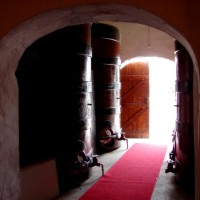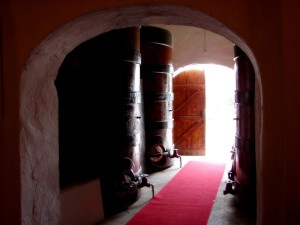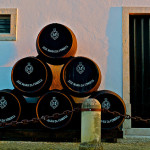Thanks to our education system, we are so accustomed to grades and evaluations. Naturally, the higher the score the closer you are to 100% and the better your performance. It goes without saying that this evaluation scheme is built naturally into our system much like how a beautiful day is one with the sun shining. When I make my way down the wine aisle I see all these wine grades – 97 wine rating, 86 wine rating, which poses the question – How are these wines being scored? What’s the scale? How do these wines achieve a high score versus a lower score?
What are Wine Ratings?
Wine ratings serve the great need for comparison and achievement. Wine ratings ultimately are in place to influence a buyer’s decision, if you were to see two bottles of wine at the same price and type, most would reach for the wine which had been evaluated. Wine ratings are a way of saying to the trained taster this winemaker has accomplished the fundamental requirements of wine: blend, finish, character qualities, and drinkable.
Wine Ratings
There are multiple wine ratings some of the most common are: Wine Spectator, Wine Advocate, and Wine Enthusiast. Primarily these different ratings are associated with the magazines. Each magazine has their own wine tasters who specialize in different regions of wine. For example the Wine Spectator has James Laube who is the primary taster for California Wines. Across the board between all the magazines all wine tastings are blind-tastes, meaning they are tasted without them knowing the label or associating any prior feelings with the brand or previous blends. The blind tastes ensure that there is no bias in the ratings.
What’s the Wine Rating Mean?
Wine rating is similar to grades where 70% is a C, so if you get 70 points the wine is rated as an average wine. Anything above a C is better, and anything below a C is below average. This is the rating scale that both Wine Spectator and Wine Advocate use. Wine Enthusiast uses a scale of 80-100 where 80 is a good wine suitable for everyday consumption and 100 is the cream of the crop. I stick to the wine ratings by Wine Spectator and Wine Advocate because I enjoy the fact that they rate wines from the poor and unacceptable to the superb. This gives me a better grasp of wine tasting whereas the Wine Enthusiast only tastes the best of the best and there is no bell curve to their tasting, rather a lot of wines will sit in the 80-90 range and few will be in the 90-100 rating.
Here is the 100 Point Scale for Wine Spectators:
95-100 – Great Wine, Superb
90-94 – Outstanding, Amazing Character and Style
85-89 – Very Good wine, special unique qualities
80-84 – Good, Solid Wine
75-79 – Ok wine, drinkable but has a few flaws
50-74 – Not recommended, drinkable but has a lot of work
What You Should Think About Wine Ratings?
I’m not telling you what to think, but at the same time I am telling you what to think. Yes, the wine critics that assess these different wines do have an exquisite palate and training for taste. But, remember the numbers are all subjective based on the user.
Wine tasting is about YOUR EXPERIENCE. If you pick up a bottle of wine and you think it should be a 100 rating then that’s what it is. Don’t ever let a number place a bias on your personal tasting experience. If everyone enjoyed wine at the same caliber as the finely tuned palette of the testers then wine would not be as popular as it is today.
When Wine Ratings are Important
Wine ratings are a subjective evaluation, you can’t really rely on the fact that a wine rating directly correlates with how good it will be in your opinion. It is very possible that you may pick up a bottle of wine with a 90+ rating and you prefer a bottle for $5.99 at an undrinkable rating. More power to you though, if you can enjoy at $5.99 what people will enjoy only at $599 a bottle then things are looking good for you.
I would say that wine ratings are important and a good deciding factor in wine when you are purchasing wine for multiple people at an event. For example, it’s good to pick well rated wines for banquets or ceremonies. In general, these wines will speak for your event to impress.
Above all – Wine tasting is about YOUR EXPERIENCE.
The author of this article Alisa Carscaden is a curious marketer, with a passion for wine, travel, and experiences. She boasts that her favorite place to buy discount wine online is at www.liquormart.com.
















